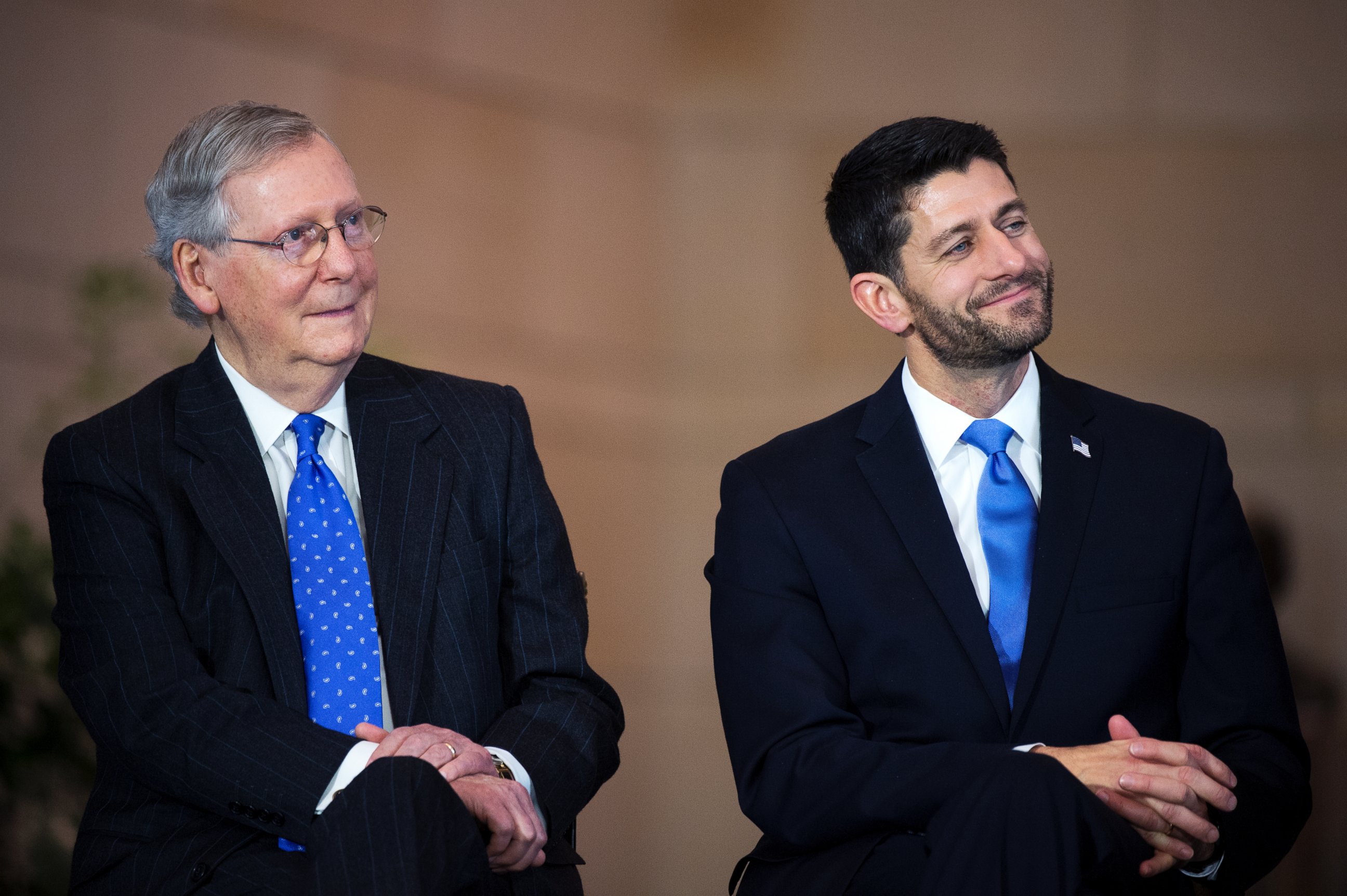One Culprit in Rand Paul's Demise: A Unified GOP Congress
Divided government means constant conflict over budgets and debt. Unity? Not so much.

Do you remember those big fights back in late October over just waving away the debt ceiling until March 2017, getting rid of the sequestration cuts and goosing federal spending by $80 billion? Remember how Republicans dug in their heels against free-spending Democrats, dispatching budget-hawk supreme Sen. Rand Paul (R-Ky.) to all the Sunday shows to make the principled case for limiting the size and scope of government and keeping crony-capitalist excrescences like the Export-Import Bank safely dead?
Of course you don't remember any of that, because Congress is not divided, Republicans run everything, and as a direct result fiscal conservatism in Washington is once again on the wane. The core issues that first drove the Tea Party, fueled Rand Paul's insurgent 2010 campaign in Kentucky, and kept him reliably in the headlines during the debt ceiling/sequestration squabbles from 2011-2013, are now no longer on the front-burner in the Republican Party or in the political media. Paul tried to mount a filibuster against the noxious two-year budget deal in late October, but it quickly fizzled. The debt and deficit and nonstop budgetary dysfunction just haven't been a real part of this presidential campaign.
There will be many post-mortems written about Rand Paul 2016, here as elsewhere, and it is always true that the ultimate responsibility lies with the candidate himself. But it's worth pointing out that the political context in which he operated shifted once the GOP took control of Congress and replaced the noisy conflict of divided government with the responsibility-avoidance of backdoor budget deals and last-minute omnibuses. And unlike the other two Tea Party senators in the race, Paul failed to locate a popular counter-narrative in a universe dominated by Donald Trump.
We will see a lot of talk in the coming days that Paul's demise means that his libertarianish issues are dead. While his failure to launch is certainly a key data point, it does not tell the whole story. Consider the top issues for Iowa Republican voters, according to entrance polls conducted by Edison Research:
Government spending: 32%
Economy/jobs: 27%
Terrorism: 25%
Immigration: 13%
Think of how much more we've been talking this election cycle about immigration instead of government spending. At a time when Republican skullduggery has exacerbated an already terrible long-term debt/deficit situation, the fact remains that many voters still care deeply about this, even if official Republican Washington and the 2016 presidential field largely does not. That promises to make an already volatile campaign even more unpredictable.


Show Comments (16)